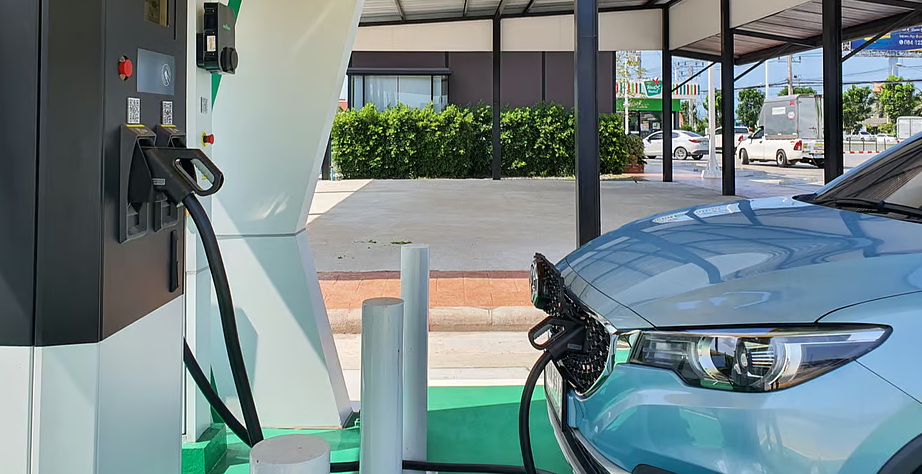The hospitality industry has long embraced sustainability as a means to reduce environmental impact, attract eco-conscious guests, and enhance profitability. As electric vehicles (EVs) become increasingly popular, integrating EV charging stations into hotel properties is no longer just an option—it’s a necessity. Hotels that invest in EV charging today are positioning themselves ahead of the curve, attracting more bookings, and securing a competitive edge in the evolving travel market.
EV charging stations at hotels serve multiple purposes, from meeting guest expectations to contributing to long-term business growth. Currently, only 26.6% of hotels have installed EV charging stations, according to a study by Responsible Stay. This low adoption rate presents a unique opportunity for proactive hotel owners to differentiate their establishments and increase their appeal.
EV drivers meticulously plan their trips around charging infrastructure, and hotels equipped with EV chargers become natural stopovers for these travelers. By offering convenient charging solutions, hotels can attract and retain a growing segment of eco-conscious customers who prefer to stay at properties aligned with their sustainability values.

Hotels that install EV chargers make themselves more attractive to a rapidly expanding market of EV drivers. Travelers are increasingly prioritizing properties with charging amenities when making accommodation decisions, especially those on long road trips. By providing this service, hotels can attract more guests, particularly in areas with limited public charging infrastructure.
Incorporating EV chargers reinforces a hotel’s commitment to sustainability. Guests, especially corporate clients with strict green policies, often prefer hotels that align with their environmental values. Properties with EV charging stations can improve their green certifications, rank higher on eco-friendly travel platforms, and establish themselves as responsible hospitality providers.
EV charging stations encourage guests to stay longer on the property. While waiting for their vehicle to charge, guests are more likely to visit the hotel’s restaurant, bar, spa, or gift shop, leading to increased ancillary revenue. This not only enhances the guest experience but also boosts the hotel’s bottom line.
Governments worldwide are actively encouraging businesses to adopt cleaner energy solutions, and incentives for EV infrastructure are growing. Hotels that invest in EV charging now may qualify for tax credits, grants, and rebates, reducing the initial installation costs. Additionally, regulatory trends indicate that more businesses will be required to offer EV charging in the future, making early adoption a strategic move.
With EV sales increasing each year, the demand for charging stations will continue to rise. Hotels that proactively install charging stations are ensuring they remain relevant and desirable in the long run. The hospitality industry is highly competitive, and properties that cater to emerging trends will maintain a stronger market position.
Beyond individual benefits, installing EV chargers at hotels contributes to the broader EV charging infrastructure, helping cities and countries transition to cleaner transportation. With increasing environmental awareness, consumers and businesses alike are pushing for a low-carbon future. Hotels that provide EV charging facilities send a strong message about their commitment to sustainability, which can significantly enhance their brand reputation.
Many local and state governments are also taking action to promote cleaner transportation, putting pressure on businesses to adopt green initiatives. Hotels that take proactive steps to support the EV transition will benefit from government support, while also strengthening customer loyalty.
Selecting the right EV chargers for a hotel depends on several factors, including location, guest needs, and budget. Here are the most suitable options:
Best for: Overnight guests and hotels with a longer guest stay duration.
Charging Speed: 4-6 hours for a full charge.
Advantages: Cost-effective, compatible with most EVs, and ideal for hotels aiming to offer overnight charging convenience.
Best for: Highway hotels, business travelers, and short-term visitors.
Charging Speed: 20-45 minutes for an 80% charge.
Advantages: Rapid charging attracts travelers in need of a quick top-up, making it ideal for roadside or high-traffic hotels.
Best for: Luxury hotels and resorts.
Charging Speed: Similar to Level 2 chargers.
Advantages: Appeals to Tesla owners and aligns well with high-end hotel brands focusing on premium guest experiences.
Investing in EV charging infrastructure is no longer a luxury—it’s a strategic business decision that enhances guest satisfaction, increases revenue, and secures a hotel’s long-term relevance. As more travelers switch to electric vehicles, hotels with charging stations will naturally become preferred destinations. Now is the time for hoteliers to embrace the shift, future-proof their properties, and capitalize on the growing EV market.
Hotels that act today will not only support global sustainability efforts but also position themselves as leaders in the evolving hospitality industry.